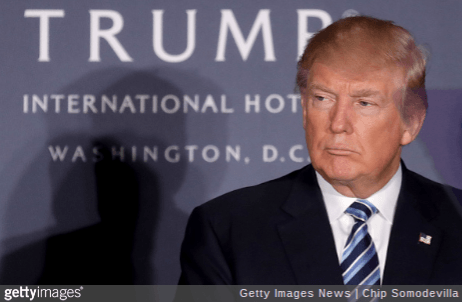I never expected to connect Donald J. Trump with the Spiritual Exercises of St. Ignatius. Then again, I didn’t expect many of the things that have happened during this presidential campaign.
The New York Times just released a summary of an extensive series of interviews with Mr. Trump that took place soon before he announced his campaign for president.
Michael Barbaro, the author of the article that looks at the interviews conducted by Michael D’Antonio, writes that Trump’s “deep-seated fear of public embarrassment” emerges in the hours of conversation. Barbaro writes:
The recordings reveal a man who is fixated on his own celebrity, anxious about losing his status and contemptuous of those who fall from grace. They capture the visceral pleasure he derives from fighting, his willful lack of interest in history, his reluctance to reflect on his life and his belief that most people do not deserve his respect.
St. Ignatius discusses similar dynamics in the Spiritual Exercises. In the Meditation on the Two Standards, Ignatius notes that all of us — heroic saints, notorious sinners, and everyone in between — are tempted to covet riches, honor, and pride. And this can take many subtle forms.
The danger for me is to think that a desire for riches, honor, and pride is something that only Trump is dealing with, rather than seeing how the same dynamics run through both parties and certainly run through my own heart.
My pride has made me unable to stop reading and talking about Mr. Trump. I say to others, “Can you believe he just said that?” Underneath such questions, however, has often been pride that I would never do or say that.
I really wouldn’t do or say some of the things he does — at least I hope I wouldn’t. But in talking about Trump, I’m often motivated by pride. And holier-than-thou pride is the most toxic form of all.
***
Based on the just-released interviews, I wonder how Trump will react to losing the election, as polls indicate he probably will.
The Times article states:
In the interviews, Mr. Trump makes clear just how difficult it is for him to imagine — let alone accept — defeat.
“I never had a failure,” Mr. Trump said in one of the interviews, despite his repeated corporate bankruptcies and business setbacks, “because I always turned a failure into a success.”
Perhaps losing in such a public way would finally push Mr. Trump to do the soul-searching that the interviews reveal he is reluctant to do. It’s often when we are feeling most humiliated that God can break through to us.
Perhaps, however, Mr. Trump would not see an electoral defeat as a real loss. Maybe such a “failure” would simply lead to yet another business success. Many have speculated that he might use the recent attention to create his own television network.
And how would I respond to a Trump defeat? By thinking that I am somehow better because Mr. Trump, who has said unacceptable things, has lost? If I respond with even more pride, then Trump would not be the real loser. I would.


